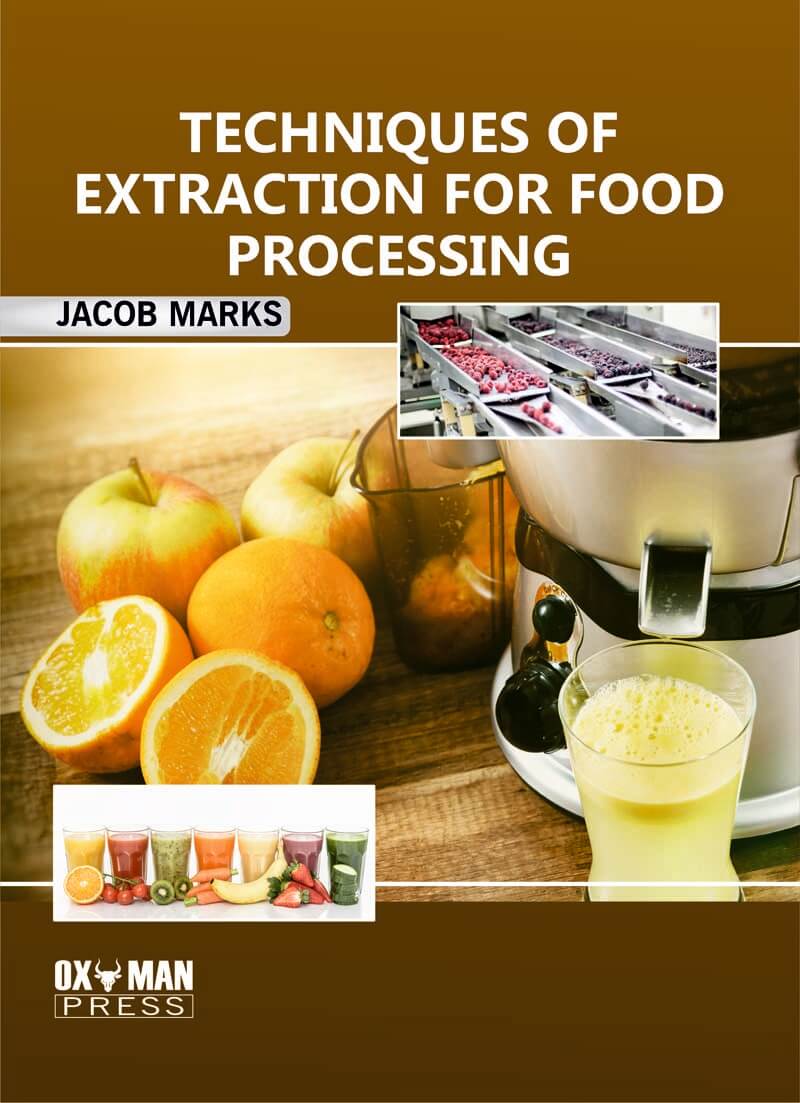Techniques of Extraction For Food Processing
| ISBN | 9781778806700 |
|---|---|
| Author | Jacob Marks |
| Publisher | OXMAN PRESS |
| Publication Year | 2023 |
| Category | Food Science & Health Nutrition |
| Price | $178.00 |
Jacob Marks is a professor in the Department of Food Science and Human Nutrition. Having taught the Basic Nutrition and Food Science and Nutrition course for a number of years, he has a thorough understanding of its objectives, goals, and the range of student needs. Aquaculture Science, Introduction to Food Processing, Fundamentals of Plant and Soil Science, Food Science and Nutrition, and Technology of meat, poultry, and fish processing are just a few of the Engage Learning textbooks that Jacob Marks has written. Additionally, he co-wrote Fundamentals of Plant Science. Steve Smith completed B.Sc. (Hons.) in dairy science. His teaching interests include dairy science and food processing in general. He works as a Senior Lecturer in the Department of Food and Nutritional Sciences. His studies have covered a wide range of dairy science and technological topics, frequently working in conjunction with industry, such as the lactoperoxidase system, separation procedures, milk coagulation, and the production of dairy products. In addition to publishing about 124 research papers, editing a book, and writing numerous book chapters, he has advised numerous PhD candidates.
